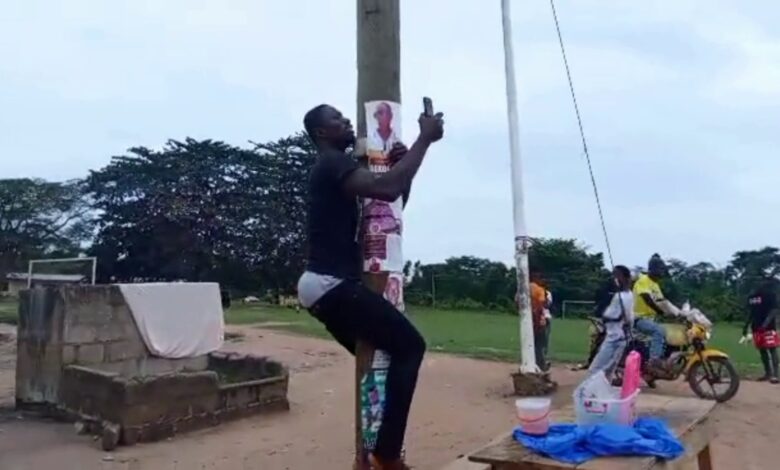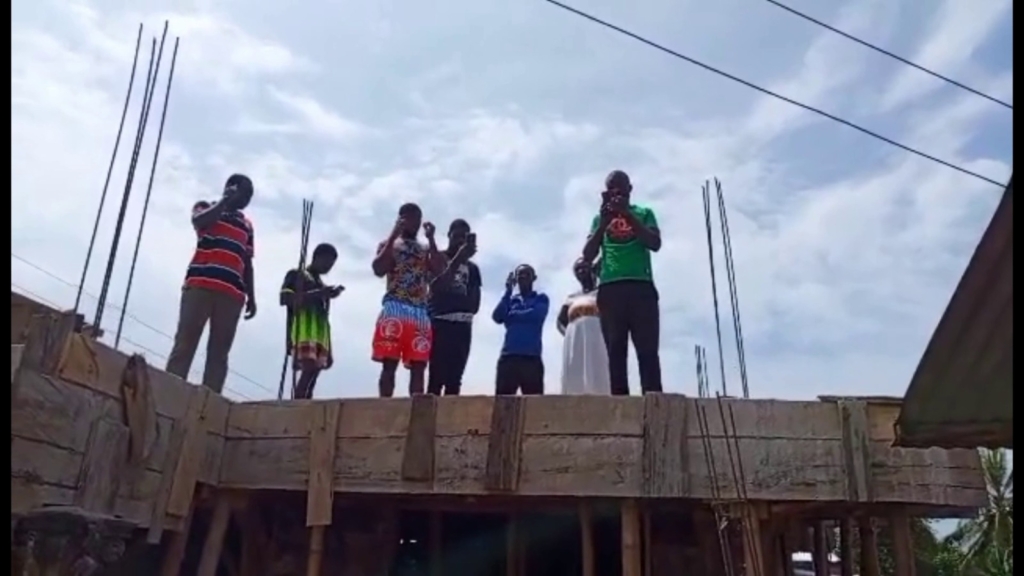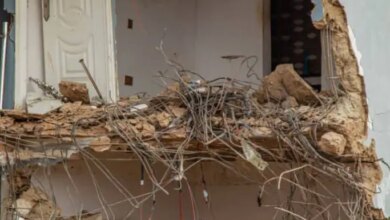We climb trees to make phone calls – Ataso residents lament

Residents of the Ataso community in the Atwima Mponua District are sounding an urgent alarm over abysmal mobile network coverage, a severe infrastructural deficit that has pushed this community to the fringes of Ghana’s digital economy.
Daily life, economic transactions, and access to emergency services are being significantly hampered, forcing citizens to adopt absurd, physically demanding measures just to communicate.
Adom TV Ashanti Regional Correspondent Joseph Obeng reports that the situation in Ataso is critical, turning the simple act of making or receiving a phone call into a literal uphill struggle.

With no reliable signal strength at ground level, community members are compelled to undertake arduous treks to distant farms or scale tall trees and uncompleted structures in search of a fleeting bar of reception.
The poor connectivity severely limits financial and commercial activities, undermining the nation’s push for digital inclusion.
Ghana’s mobile penetration rate is estimated at over 130% nationally, yet deep pockets of exclusion like Ataso persist, hindering economic growth and access to essential services.
The frustration is palpable among locals, who feel neglected by the telecommunication giants operating across the country.
One resident, speaking in an interview with Adom News, lamented the difficulty of conducting basic commerce.
“The network is our major problem and is affecting us a lot. It’s difficult transacting business in this village, we’re pleading with the government to come to our aid”.
The inability to rely on Mobile Money (MoMo) services—a lifeline for Ghana’s informal sector, which sees billions of Ghana Cedis transacted daily—forces business owners and farmers in Ataso to rely solely on cash, incurring high travel costs and safety risks associated with transporting money.
The lengths to which residents go underscore the severity of the network failure. Another resident shared the unbelievable routine they must endure:
“We climb trees before we’re able to make phone calls, or we climb an uncompleted storey building.”
This dangerous practice not only exposes residents to unnecessary physical risks but also severely delays communication during health or security emergencies, where a few minutes’ delay can be the difference between life and death.
The distressed community is issuing a dual appeal: urging telecommunication companies (Telcos) to swiftly expand their network infrastructure to cover the Ataso area, and calling upon the Ministry of Communications and Digitalisation to intervene.
Their plea highlights the necessity of universal access for all citizens, arguing that bridging the digital divide is not merely a luxury but a fundamental requirement for modern development and security.
Stakeholders are hoping that the government, through the National Communications Authority (NCA), will collaborate with mobile operators to prioritize the installation of a new base transmission station (BTS) to provide a stable, high-speed signal, finally connecting Ataso to the rest of the country.
DISCLAIMER: The Views, Comments, Opinions, Contributions and Statements made by Readers and Contributors on this platform do not necessarily represent the views or policy of Multimedia Group Limited.
DISCLAIMER: The Views, Comments, Opinions, Contributions and Statements made by Readers and Contributors on this platform do not necessarily represent the views or policy of Multimedia Group Limited.
Source link





